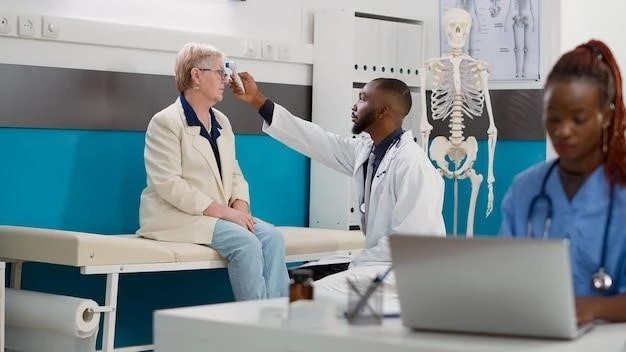Disease ⎯ Gonadal Dysgenesis Mixed
When it comes to Gonadal Dysgenesis Mixed, it is crucial to understand the complexities of this genetic disorder. Seek guidance from healthcare professionals for accurate diagnosis and treatment options.
Understanding Gonadal Dysgenesis Mixed
Gonadal Dysgenesis Mixed is a complex genetic disorder that affects gonadal development. It is characterized by abnormal gonadal tissue, leading to reproductive health issues. This condition can result in a range of symptoms related to gonadal function and hormone production.
Individuals with Gonadal Dysgenesis Mixed may experience a variety of symptoms such as delayed puberty, infertility, and primary amenorrhea in females. In some cases, there may be ambiguous genitalia present. Understanding the genetic basis of this disorder is crucial in guiding diagnosis and treatment.
Medical professionals play a key role in diagnosing Gonadal Dysgenesis Mixed through a combination of physical exams, hormone testing, and imaging studies. Genetic testing may also be recommended to identify chromosomal abnormalities that contribute to the condition.
It is important for individuals with Gonadal Dysgenesis Mixed to work closely with a healthcare team specializing in reproductive health. Treatment options may include hormone therapy to address hormonal imbalances and support reproductive function. In some cases, surgical interventions may be necessary to address anatomical abnormalities.
Genetic counseling is essential for individuals with Gonadal Dysgenesis Mixed and their families. Understanding the genetic implications of the disorder can help in making informed decisions about family planning and potential risks of passing the condition to future generations.
By gaining a comprehensive understanding of Gonadal Dysgenesis Mixed and consulting with healthcare professionals, individuals can better manage the symptoms and challenges associated with this genetic disorder. Stay informed and proactive in seeking medical support for optimal care and reproductive health.
Diagnosis and Symptoms
Diagnosing Gonadal Dysgenesis Mixed involves a combination of physical exams, hormone testing, and imaging studies to assess gonadal development and function. Common symptoms include delayed puberty, infertility, and primary amenorrhea in females. Ambiguous genitalia may also be present.
Individuals with Gonadal Dysgenesis Mixed should seek medical evaluation if they experience any symptoms related to reproductive health or if there is a family history of genetic disorders. It is essential to consult healthcare professionals specializing in genetics and reproductive health for accurate diagnosis and personalized treatment plans.
Detailed medical history, physical examination, hormone level assessment, and imaging tests such as ultrasound or MRI are commonly used in diagnosing Gonadal Dysgenesis Mixed. Genetic testing may be recommended to identify chromosomal abnormalities associated with this disorder.
Early detection and diagnosis of Gonadal Dysgenesis Mixed can help in managing symptoms effectively and addressing potential reproductive health complications. Timely intervention and treatment can improve quality of life and fertility outcomes for individuals with this genetic disorder.
If you suspect you or a loved one may have symptoms of Gonadal Dysgenesis Mixed, do not hesitate to consult a healthcare provider. Prompt diagnosis and appropriate medical care are essential for maintaining reproductive health and overall well-being. Stay proactive in seeking medical attention and pursuing necessary diagnostic tests for optimal management of this condition.
Medical Treatment Options
Medical treatment for Gonadal Dysgenesis Mixed aims to address hormonal imbalances, reproductive health issues, and any associated complications. Depending on individual needs and symptoms, treatment options may include hormone therapy, surgical interventions, and psychological support.
Hormone therapy can help regulate hormonal levels and support normal development in individuals with Gonadal Dysgenesis Mixed. Estrogen replacement therapy may be prescribed for females to induce and maintain secondary sexual characteristics and support bone health.
Surgical interventions may be recommended to address anatomical abnormalities or complications related to gonadal dysgenesis. Surgical procedures can help correct issues like ambiguous genitalia, and in some cases, fertility preservation techniques such as egg freezing may be considered.
Psychological support and counseling are essential components of the treatment plan for individuals with Gonadal Dysgenesis Mixed. Coping with the emotional aspects of a genetic disorder and managing fertility-related concerns can be challenging, and mental health professionals can provide valuable support.
It is important for individuals with Gonadal Dysgenesis Mixed to work closely with a multidisciplinary healthcare team that includes endocrinologists, gynecologists, genetic counselors, and mental health professionals. This collaborative approach ensures comprehensive care and tailored treatment plans.
Discuss treatment options with your healthcare provider to determine the most appropriate interventions based on your specific symptoms and reproductive goals. By actively participating in your medical care and following recommended treatment regimens, you can optimize your reproductive health and overall well-being while living with Gonadal Dysgenesis Mixed.
Reproductive Health and Fertility
Reproductive health and fertility considerations are crucial for individuals with Gonadal Dysgenesis Mixed. This genetic disorder can significantly impact reproductive function, fertility, and overall well-being. Understanding the implications of the condition on fertility is essential for making informed decisions about family planning.
Individuals with Gonadal Dysgenesis Mixed may face challenges related to infertility and difficulties conceiving naturally. It is important to consult with a reproductive endocrinologist or fertility specialist to explore assisted reproductive technologies that may help individuals with this condition achieve their desired family-building goals.
Fertility preservation options such as egg or embryo freezing may be recommended for individuals with Gonadal Dysgenesis Mixed who wish to preserve their fertility for future use. These techniques can offer hope for individuals who desire biological children later in life.
Discussing reproductive health and fertility concerns with a healthcare provider can help individuals with Gonadal Dysgenesis Mixed navigate the emotional and practical aspects of managing fertility-related issues. Open communication with healthcare professionals can lead to personalized solutions and support in addressing reproductive goals.
Genetic counseling is an essential component of family planning for individuals with Gonadal Dysgenesis Mixed. Understanding the genetic implications of the disorder and potential risks of passing it to future generations is crucial in making informed decisions about fertility treatments and family building.
By prioritizing reproductive health, seeking guidance from fertility experts, and exploring fertility preservation options, individuals with Gonadal Dysgenesis Mixed can empower themselves to make informed choices about their future family planning. Remember that support and resources are available to help navigate the complexities of fertility management in the context of this genetic disorder.
Complications and Medical Conditions

Individuals with Gonadal Dysgenesis Mixed may experience various complications and medical conditions associated with the disorder. Complications can arise from hormonal imbalances, abnormal gonadal development, and fertility issues.
One common complication of Gonadal Dysgenesis Mixed is infertility, which can have profound psychological and emotional impacts. It is essential for individuals facing infertility to seek support from healthcare professionals, mental health providers, and support groups to navigate these challenges.
Other complications may include delayed puberty, sexual development issues, and an increased risk of developing osteoporosis due to hormonal imbalances. Regular monitoring by healthcare providers can help identify and address these complications early on.
Individuals with Gonadal Dysgenesis Mixed may also be at higher risk for certain medical conditions such as heart disease, diabetes, and autoimmune disorders. It is important to prioritize overall health and well-being through regular check-ups, healthy lifestyle choices, and proactive management of any associated medical conditions.
Monitoring hormone levels, bone density, and cardiovascular health is essential for individuals with Gonadal Dysgenesis Mixed to mitigate the risk of complications. Working closely with a healthcare team that includes endocrinologists, cardiologists, and other specialists can help in managing potential medical conditions effectively.
If you have Gonadal Dysgenesis Mixed, stay informed about the potential complications and medical conditions associated with the disorder. Proactive management, regular medical evaluations, and lifestyle modifications can play a crucial role in maintaining overall health and minimizing the impact of complications on your well-being.
Chromosomal Abnormalities and Genetic Counseling
Individuals with Gonadal Dysgenesis Mixed often have chromosomal abnormalities that contribute to the disorder; Understanding the genetic basis of the condition is essential for accurate diagnosis, personalized treatment plans, and informed family planning decisions.
Genetic counseling plays a critical role in providing individuals with Gonadal Dysgenesis Mixed and their families with information and support regarding the genetic implications of the disorder. Genetic counselors can help explain chromosomal abnormalities, inheritance patterns, and potential risks to offspring.
Chromosomal analysis through genetic testing can identify specific genetic variations associated with Gonadal Dysgenesis Mixed. This information is valuable for guiding treatment decisions, assessing fertility options, and understanding the likelihood of passing the condition to future generations.
Genetic counseling sessions offer individuals with Gonadal Dysgenesis Mixed the opportunity to ask questions, discuss concerns, and receive guidance on family planning choices. Understanding the hereditary aspects of the disorder empowers individuals to make informed decisions about reproduction and genetic testing.
If you have Gonadal Dysgenesis Mixed, consider seeking genetic counseling to gain insights into the chromosomal abnormalities linked to the disorder. Working with a genetic counselor can provide clarity on the genetic factors influencing your condition and assist in making informed choices about your reproductive health and family planning.
Remember that knowledge is key in managing a genetic disorder like Gonadal Dysgenesis Mixed. By engaging in genetic counseling and staying informed about chromosomal abnormalities associated with the condition, you can take proactive steps towards optimizing your health, well-being, and family planning decisions.
